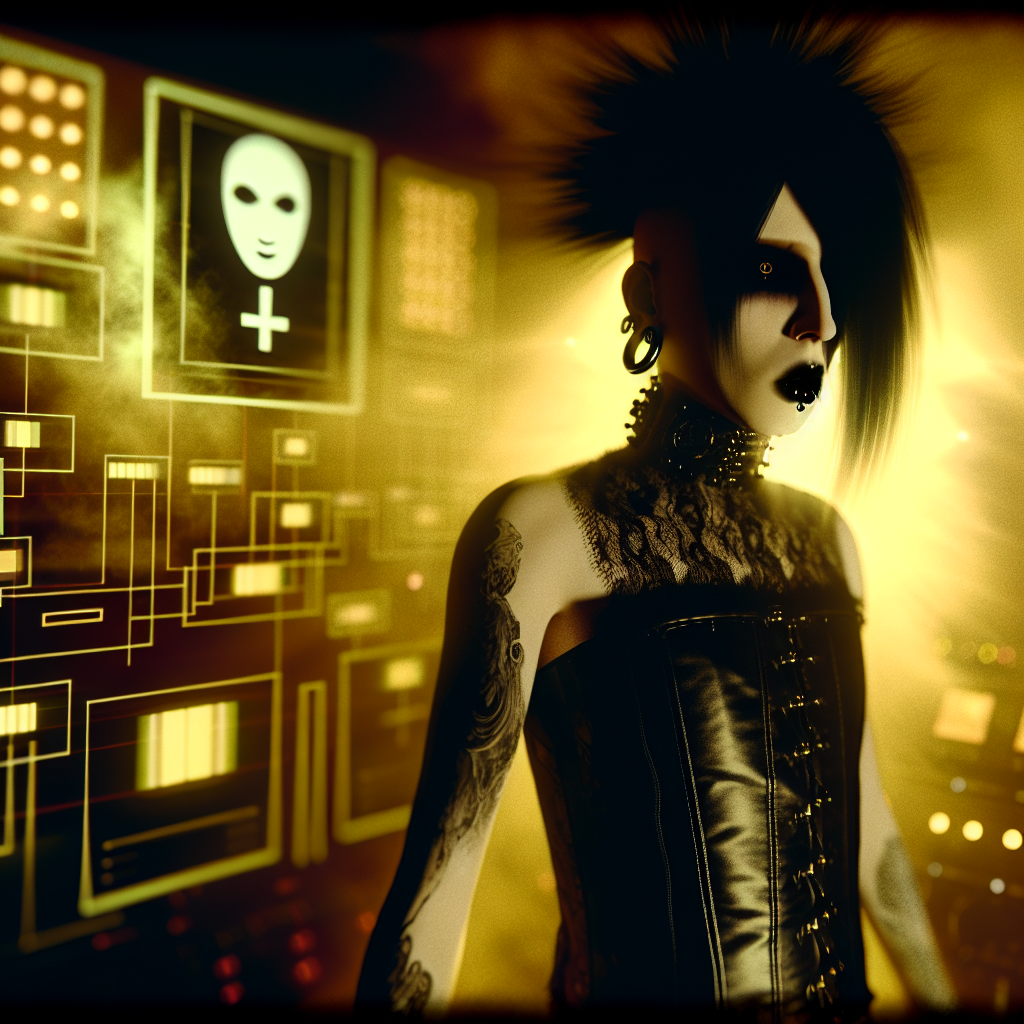
“`html
Dani Filth’s Take on AI in Music: A Dangerous Trend Worth Noting
In recent years, artificial intelligence (AI) has made a significant foray into the music industry, prompting strong reactions from select artists. One such voice is none other than Dani Filth, iconic frontman of Cradle of Filth. The veteran musician has openly criticized the application of AI in music, dubbing it as a “dangerous trend” that could have alarming repercussions on creativity, authenticity, and the future of the art form.
AI in Music: A Rapidly Growing Phenomenon
From AI-generated lyrics to fully synthesized symphonies, the influence of artificial intelligence in creating music is no longer just speculative. Today, AI algorithms can analyze thousands of songs, patterns, and chord progressions to create entirely new compositions in minutes. AI tools like OpenAI’s Jukedeck and Google’s Magenta have empowered creators to explore unlimited possibilities, but they’ve also left industry veterans concerned about their implications for artistry.
Why Dani Filth Sees AI as a “Dangerous Trend”
Dani Filth’s criticism of AI emerges from deep-seated concerns about the erosion of human creativity. The distinctive voice of Cradle of Filth has been an outspoken supporter of preserving the emotional and human elements in music. He argues that the rise of AI threatens these very foundations. According to the gothic metal icon, the music-making process is more than just a mechanical endeavor; it’s a deeply personal expression of emotions, experience, and storytelling.
- Loss of Authenticity: Filth suggests that AI compositions, although technically proficient, lack the emotional depth and authenticity that human artists bring to their work.
- Erosion of Creative Value: With automation taking over creative processes, he fears this could discourage new musicians from honing their craft or experimenting with innovative ideas.
- Commoditization of Art: The use of AI risks turning music into a mass-produced commodity, devoid of individuality or personal touch.
Is AI Undermining Human Effort in Music Creation?
One of the primary arguments leveled against AI in music is that it could potentially devalue the hard work of musicians who spend years refining their craft. Dani Filth feels this strongly, pointing out that the passion and struggles artists pour into their creations cannot be replicated by machine learning algorithms.
In the words of Dani Filth, “Music isn’t meant to be perfect; it’s meant to be honest.” This ethos underpins his criticism of AI-generated tunes, which, while technically flawless, might fail to connect on an emotional level with listeners. For Filth, the imperfections in music often add to its charm—a quality that algorithms cannot mimic.
The Potential Ethical Dilemmas
Beyond the artistic dimensions, Dani Filth and others in the music industry have brought up ethical questions surrounding AI in music. Key among these concerns is the questionable use of AI to mimic the styles, voices, or even entire albums of existing artists without their consent. This raises alarm bells around intellectual property theft and copyright issues.
Furthermore, it’s not difficult to imagine a future where AI-produced songs dominate streaming platforms, sidelining human musicians who simply cannot compete with the speed and cost-effectiveness of automated content creation. For Filth, this scenario could lead to a dystopian music industry where originality becomes obsolete.
What Does the Future Hold?
As AI continues to establish its presence, the music industry finds itself at a crossroads. On one hand, AI offers intriguing opportunities for creative collaboration and experimentation. On the other hand, voices like Dani Filth’s remind us to tread carefully and maintain the balance between technological advancement and artistic integrity.
It’s worth noting that the rise of AI in music also highlights the need for robust legislation to address potential challenges. Clear copyright protections and ethical usage policies must be implemented to shield creators from exploitation and ensure equitable participation in the industry.
How Can Artists Preserve Creativity in the Era of AI?
To counteract the challenges brought by AI, many musicians, including Dani Filth, advocate for a renewed focus on human creativity. Artists can emphasize what machines cannot replicate—genuine emotion, unique perspectives, and deeply personal stories. Collaboration with fellow musicians and drawing inspiration from physical, real-world experiences could also help artists stand out in an AI-saturated space.
Similarly, fostering awareness among listeners is crucial. Music lovers can make a conscious effort to support human-made music by attending live performances, purchasing albums directly from artists, and promoting original content over algorithm-generated work.
Dani Filth’s Final Warning About the Dangerous Trend of AI in Music
For Dani Filth, the creeping dominance of AI in music is much more than a technological shift—it’s a cultural and artistic dilemma. He urges the music community to think critically about how we integrate AI into creative processes and to recognize both its potential and its pitfalls.
The debate may be far from over, but one thing remains clear: artists like Dani Filth are determined to uphold the essence of music as an enduringly human craft. As technology continues to reshape the music landscape, it’s up to musicians, fans, and industry leaders alike to decide how best to navigate this brave new world.
The question remains—how much of a role should AI really play in music creation? While it may be too early to predict the ultimate outcome, voices like Dani Filth’s ensure the dialogue remains open, impassioned, and grounded in the enduring value of human creativity.
“`
